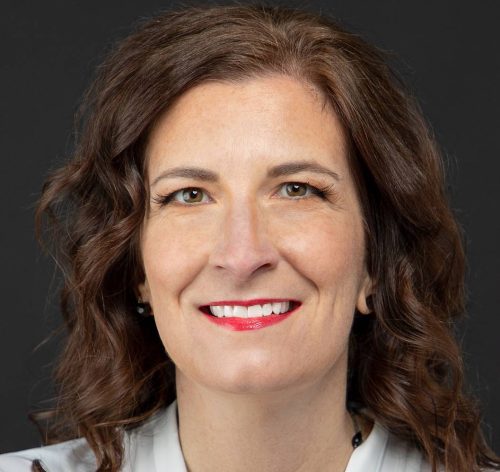You know how the story goes in a typical romantic comedy: a big break-up occurs and the ladies reach for a pint of ice cream while the guys drown their sorrows in a whiskey bottle. In reality, we know that turning to junk food and alcohol are not long-term solutions for a path to real healing. So, what does good self-care after a breakup look like?
Here are five tips for taking positive steps to moving past a major breakup or divorce.
1. Feel all the breakup emotions
Even if the breakup or divorce was your choice, it still changes many aspects of everyday life as you’ve known it. Uncoupling can be a significant lifestyle transition, affecting emotional, physical and social well-being. It’s normal to feel a variety of emotions around these changes, including sad, happy, anxious, excited, disappointed and even mad.
“You need to feel the feels,” said Gina Schmidt David, a certified health coach. Trying to ignore the feelings by distracting yourself with TV, isolation or junk food just prolongs healing. “We’re not trying to fast-track through a grieving process. When we feel the feels, we also don’t want to elevate them; we just need to know what those feelings are and acknowledge them.”
It’s also important to know and remind yourself that these emotions will pass. It’s normal to not feel like yourself for a bit. Understand that feeling these emotions is a rite of passage and a step in the right direction.
2. Lean on other people
Family and friends are important to have around when you need them during this time. As you get lost in a mix of emotions, you can also lose your sense of self. Schmid David, who went through a divorce herself after 12 years of marriage, said she ultimately created her own “board of directors” composed of friends and trusted professionals she could turn to for valuable feedback while her own emotions were so unsettled.
“I turned to those I trusted, and also to people who had expertise in areas where I’d needed help – like a financial planner and a therapist – and asked them questions when I was unsure of making important decisions during that time.”
Finding a professional therapist, she said, is something everyone can benefit from, regardless of what they’re experiencing. “Visiting a counselor is not a negative thing; it’s trying to understand where we’re at and how we show up in the world,” she said.
If you don’t feel like you currently have a strong support system, it’s never too late to create one. Schmidt David encourages her clients to find others with similar interests who can also benefit from having the same support. “Find a community of like-minded people who care about you and want the best for you,” Schmidt David said. The support should be reciprocal, and you’ll have the opportunity to pay it forward when they come to you during hard times in the future.
3. Pay attention to your body’s maintenance
“Our bodies are an operating system,” Schmidt David said. “We are made to move, not to sit for long periods of time. We’re made to have conversations, to listen and to breathe.” Ensuring the operating system runs smoothly includes fueling it the right way and keeping it maintained.
“What you’re eating could turn into an emotional response. So, if I’m filling my plate with unhealthy items, it can certainly turn into an unhealthy state. It’s going to show up on my waistline and also show up in how I treat myself and others,” she said.
And do we dare say the “E” word at a time like this? Yes, whether you like it or not, exercise plays an important role in helping you to feel better not only physically, but mentally and emotionally. Studies show that exercise, at any level, helps protect against depression while also naturally boosting energy and endorphins, the cluster of hormones that increase positive feelings.
Getting the benefits of exercise doesn’t mean exhausting, marathon-length runs or spending hours on a treadmill. Simply taking your dog for a 30-minute walk every day or biking through the park counts. Invite a friend to join you for a stroll through the local farmers’ market or take your kids to tour a museum you’ve never visited in the next town over. The key is to spend some time moving every day.
4. Your mindset matters
It can be easy to find yourself on the negativity train after a breakup, one troubling thought leading to another. Schmidt David said exploring and identifying your values can be useful for creating new goals that make a big difference in your overall happiness.
“I use a simple tactic called ‘Stop, Challenge, Choose,’” said Schmidt David. When you start traveling down a path of negativity, “stop what you’re thinking or doing and challenge yourself to consider whether this thought or action aligns with your values or goals. Would continuing with that thought really help you? Then you can make a choice that fits your values and goals. If you have a religious or spiritual affiliation, make the choice to simply show up.”
You also need to keep your brain active. Binging Netflix might take your mind off a breakup, but it’s not a long-term solution for a healthy brain. Finding new hobbies, or revisiting old ones, can be a great way to exercise your brain, meet new people and stay active after a breakup. Think about what interests you most – now and in the past. Did you love dancing as a kid? Look for dance classes that are available for adults. Do you enjoy nature? Call your parks department to learn about programs offered.
If you’re more of an introvert and find comfort in solitude, consider exploring meditation apps. Search YouTube for free guidance on activities like yoga, do-it-yourself crafts, and fix-it tutorials for home maintenance projects. Journaling also offers benefits for self-reflection, goal setting and simply helping you to express thoughts, feelings and ideas during this journey of transition.
5. Self-care is not selfish
A little self-care can go a long way in helping you to move forward when a relationship ends.
“During a chapter in our lives when something goes off plan, we have to go back to the fundamentals of how to function,” Schmidt David said. “Our bodies are much like a vehicle and need the appropriate fuel and enough air in the tires to get from point A to B.”
Taking time to care for yourself can be hard for some, especially parents, but it is crucial during emotionally difficult times like divorce. It’s important to remind yourself that if you are not taking care of your own health, you won’t be in a good place to care for others, including your children, family and friends.
If you’re having a hard time knowing how to practice self-care, Schmidt David recommended turning to a therapist or a health coach. Schmidt David helps her clients to assess where they currently stand physically, mentally and emotionally. “Then we look at what has worked for them in the past, what’s going on now, and how they show up in a world that has a lot of noise.” The key, she said, is developing goals and creating some accountability to bridge the gap for continuing to make progress.
“We need to show up for ourselves first, then in turn, we can show up for others.”






